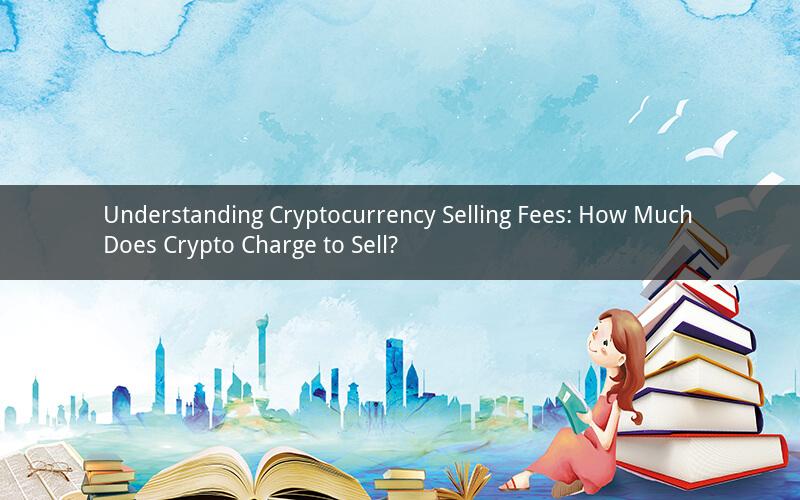
Introduction:
The world of cryptocurrency has gained immense popularity over the years, attracting both beginners and seasoned investors. With the rise of digital currencies, the need to sell crypto assets has also increased. One of the most common questions among crypto users is how much does crypto charge to sell? In this article, we will explore the various factors that determine selling fees in the cryptocurrency market.
1. Transaction Fees:
When you decide to sell your crypto assets, the primary cost you will encounter is the transaction fee. This fee is paid to the network for processing the transaction and ensuring its security. The amount of transaction fee varies depending on the blockchain network and the current network congestion.
1.1 Blockchain Network Fees:
Different cryptocurrencies operate on different blockchain networks, and each network has its own fee structure. For instance, Bitcoin has a higher transaction fee compared to Ethereum or Litecoin. The fee is usually measured in Satoshis (0.00000001 BTC) for Bitcoin and Gwei for Ethereum.
1.2 Network Congestion:
The level of network congestion also plays a significant role in determining the transaction fee. During times of high network congestion, such as when there is a surge in trading activity, the fee may increase. Conversely, during periods of low activity, the fee may be lower.
2. Exchange Fees:
Another significant factor that affects the cost of selling crypto is the exchange fee. Most crypto exchanges charge a percentage of the transaction value as a fee for their services. The fee percentage varies among different exchanges, and some platforms offer lower fees to attract more users.
2.1 Fixed vs. Taker/Taker-maker Fees:
Exchanges can have two types of fee structures: fixed and taker/taker-maker fees. Fixed fees are a set amount that is charged regardless of the transaction value. On the other hand, taker/taker-maker fees vary based on the user's trading activity. Taker fees are charged for placing a market order, while maker fees are charged for placing a limit order.
2.2 Additional Fees:
Some exchanges may also charge additional fees for withdrawal or deposit methods, liquidity provision, or other services. It is crucial to review the exchange's fee structure before deciding to sell your crypto assets.
3. Withdrawal Fees:
When you sell your crypto assets, you will need to withdraw the funds to your bank account or another wallet. The withdrawal process may incur additional fees, depending on the chosen method and the network involved.
3.1 Bank Transfer Fees:
If you choose to withdraw your funds through a bank transfer, your bank may charge a fee for processing the transaction. This fee can vary based on your bank and the country of residence.
3.2 Cryptocurrency Network Fees:
For withdrawing cryptocurrencies, you may need to pay network fees to the blockchain network. The fee amount depends on the network and the size of the transaction.
4. Other Costs:
Apart from the primary costs mentioned above, there may be other costs associated with selling crypto assets. These costs include taxes, brokerage fees, and any other related expenses.
5. Tips for Reducing Selling Fees:
Here are some tips to help you minimize the costs associated with selling crypto assets:
5.1 Choose a Low-Fee Exchange: Research and compare the fee structures of different exchanges to find one with competitive rates.
5.2 Optimize Network Fees: Monitor the network congestion and adjust your transaction fee accordingly to ensure timely processing.
5.3 Use Cryptocurrency Wallets: Consider using a cryptocurrency wallet for storing and transferring your assets, as they often have lower withdrawal fees compared to exchanges.
5.4 Stay Informed: Keep up-to-date with the latest developments in the crypto market to make informed decisions about selling your assets.
FAQs:
1. Q: What is the average transaction fee for selling crypto assets?
A: The average transaction fee varies depending on the blockchain network and the current network congestion. For Bitcoin, it can range from a few cents to a few dollars.
2. Q: Are there any exchanges that offer free crypto selling?
A: Some exchanges may offer promotions or discounts on fees for a limited time. However, most exchanges charge a percentage of the transaction value as a fee for their services.
3. Q: Can I avoid paying network fees when selling crypto?
A: While you cannot completely avoid network fees, you can optimize them by monitoring network congestion and adjusting your transaction fee accordingly.
4. Q: Do I need to pay taxes when selling crypto assets?
A: Yes, you may need to pay taxes on your crypto assets, depending on your country's tax laws. It is essential to consult with a tax professional or refer to your local tax regulations.
5. Q: How can I find the cheapest way to sell my crypto assets?
A: To find the cheapest way to sell your crypto assets, research and compare the fees of different exchanges, withdrawal methods, and network fees. Additionally, consider using cryptocurrency wallets for lower withdrawal fees.